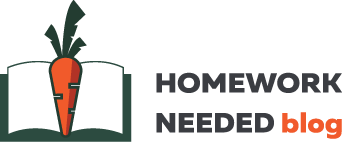How to read books effectively? How to understand that a book is worth your attention? How to remember things you have read for long? One of our service writers decided to share his tips about effective reading.
1. Book List
Many people feel a mix of apathy and greed towards books. They like to buy books, to gather them on shelves, but they do not always read them. A long list of unread texts demotivates a person.

Do not buy books in advance. It is enough for you to have one or two. The rest will wait for their turn in a book list. Try buying expensive illustrated editions less. That is a good gift, but not from you for yourself.
2. Rule of 50 Pages
Your life is too short for you to waste in on dull books.
Try to refuse boring and useless papers as fast as you can. It is enough to read first 50 pages of a book to do that. If the book gets you involved during 50 pages, it will not disappoint you till the last word. If it does not, well, life is life.
Try not to give a second chance to bad books. Thousands of new and interesting ones are published around you every year.
3. Who Writes & About What
Get in touch with a book before reading it: read about the book and its author, study the content. This is how you give your reading the correct direction.
Additionally, ask yourself before reading: what do you want to find out about the book and what problems will it help you to solve? This will help you to catch up exactly the wanted topics during the reading process.
4. Alternative Formats
There are not only paper books in this world. There are enough other formats: articles, audiobooks and podcasts, infographics and long-reads, digests and mails.
If books seem to you to be dull and long, then they are dull and long. Switch to other formats, find your own one.
5. Read with a Pencil
Never read a book without having a pencil in your hand. Reading is useless if you do not have the possibility to underline a quote or to make a note.
The book is a mountain of word ore where you need to mine some grains of sense. If you don’t have the possibility to separate gold from stones, why do you read at all?
Underline, mark, notate your thoughts and ideas. Turn the book into something more than just a pack of printed pages. The book becomes really yours after such a conscious reading.
6. Minimal 30 Pages Daily
Everyone has their own reading tempo. “Marathoners” read a single book during a month, they bite small pieces from the book every day. “Sprinters” run through the whole book in a few days. But there is a simple and universal reading formula. It will help you read and read until the book’s end earlier than your interest and energy fade away.
Try to read not less than during an hour daily, and go through 30 pages per 24 hours. You’ll be able to complete a book per week like that. This means 60 books per year: a great result!
7. Mix Up Genres
Everyone has genres to call them favorite. But if to go too deep into detective novels or business literature, you’ll obligatory get overwhelmed. Even cool books will stop satisfying you.
In this case, it is useful to change a genre. Mix books like cocktail ingredients. Read a tome of classics after a non-fiction book. Then move to science fiction, and after that go to a book about negotiations.

The skill of mixing literature genres is a perfect way to stay in tonus, and to widen your reading interests and outlook.
8. Write About What You’ve Read
If you read effectively, you’ll collect quotes, paragraphs and thoughts about what you have read. That is a valuable information, the real concentrated book. It is not for storing it in a chest.
Start your book blog. Write reviews and criticism on read books, share quotes. Publish your book list, criticize bad titles and praise good ones. Even Facebook can work here, no special writing skills are required.
That is how you get a place to store quotes and phrases, and your friends get one more reason to love you.
9. Read Your Notes
Develop a habit to read your book notes from time to time. If you “squeeze” the book into several pages. then 30 minutes of your time will be enough for you to remind yourself about everything you’ve read.
Knowledge loves to be repeated. Key ideas will always stay nearby from you to use them in practice.
10. Presentation of Read Material
In order to prevent forgetting things you’ve read, tell your friends about them. You can hold a speech on seminars among your family members if you want.
So, here is a short summary of our author’s tips:
- Do not store books, read at least 30 pages of them daily;
- Judge a book basing on its first 50 pages;
- Don’t be shy to try various genres and alternative formats;
- Write down your favorite quotes and make notes;
- Share them on your blog and make presentations for your friends or family members.

